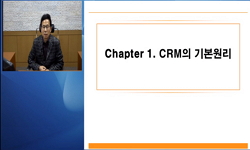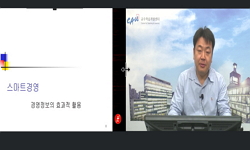기업들은 고객들이 갖고 있는 기대와 요구가 다양화되고, 고객의 가치 및 라이프스타일도 시간의 흐름에 따라 급속하게 달라지고 있는데, 그 대표적인 것이 편리성의 추구이다. 이러한 현실...
http://chineseinput.net/에서 pinyin(병음)방식으로 중국어를 변환할 수 있습니다.
변환된 중국어를 복사하여 사용하시면 됩니다.
- 中文 을 입력하시려면 zhongwen을 입력하시고 space를누르시면됩니다.
- 北京 을 입력하시려면 beijing을 입력하시고 space를 누르시면 됩니다.
기업의 고객관계관리 프로세스가 경영성과에 미치는 영향 = The Effects of Customer Relationship Management Process on the Business Performance
한글로보기https://www.riss.kr/link?id=T11436506
- 저자
-
발행사항
서울 : 건국대학교 경영대학원, 2008
-
학위논문사항
학위논문(석사) -- 건국대학교 경영대학원 , 경영 마케팅관리전공 , 2008. 8
-
발행연도
2008
-
작성언어
한국어
- 주제어
-
발행국(도시)
서울
-
형태사항
viii, 91 p. ; 26cm
-
일반주기명
지도교수:송균석
- 소장기관
-
0
상세조회 -
0
다운로드
부가정보
국문 초록 (Abstract)
기업들은 고객들이 갖고 있는 기대와 요구가 다양화되고, 고객의 가치 및 라이프스타일도 시간의 흐름에 따라 급속하게 달라지고 있는데, 그 대표적인 것이 편리성의 추구이다. 이러한 현실에서 끊임없이 변화하는 고객의 기대와 요구에 부응하여 고객과의 관계를 유지하고 적절한 상품과 서비스의 차별화를 통해 장기적으로 기업의 경쟁적 우위를 고수하기 위해 최근 기업들은 앞다투어 CRM을 도입하여 수행하고 있다.
본 연구는 기업의 경영혁신의 일환으로 등장하고 있는 CRM을 도입하여 실행중인 기업들이 전사적인 차원에서 얼마만큼 경영성과를 얻고 있는가에서 논점을 출발하여 효율적인 고객관계관리 구축을 위해 기업의 고객관계관리 프로세스와 경영성과와는 상호 어떠한 관련성을 가지고 있는지와 고객관계관리가 기업의 경영성과에 어떠한 영향을 미치는가를 구명하고자 하는 데 있다.
고객관계관리 프로세스를 구성하고 있는 각 하위변수들(6개 변수)이 재무적 성과에 미치는 영향(회귀분석)과 그리고 고객관계관리 프로세스를 구성하고 있는 각 하위 변인들이 종속변인의 비재무적 성과인(고객 성과)에 미치는 영향 (회귀분석)을 통하여 분석하였다. 또한 분산 분석을 통하여 독립변수(고객관계관리 프로세스 6개의 변수)가 (피조사자의 일반적 사항)가 어떠한 영향을 미치는가를 사전검토 하였다.
본 연구의 분석한 결과를 살펴보면 첫째, 고객정보 수집 및 관리, 고객기대사항 파악, 마케팅 전략수립, 고객관련 통합, 고객관리 프로세스, 고객관리 성과측정의 6개 독립변수에 대한 통계적 유의도를 검증한 결과 유의하게 나타났다. 둘째, 재무적 성과와 비재무적 성과에 있어서 고객정보 수집 및 관리, 마케팅 전략수립, 고객관련통합 등은 재무적 성과인 총자산 이익률, 자기자본 이익률, 영업이익 증가, 매출액 신장, 순이익 증가 등에 강한 영향을 미치는 것으로 나타났다. 셋째, 고객기대사항 파악, 고객관리 프로세스, 고객성과 측정 등은 비재무적 성과인 고객성과 즉, 시장점유율, 새로운 고객증가, 기존고객 유지, 고객 만족도 증가, 고객 수익성 증가에 강한 영향을 미치는 것으로 나타났다. 넷째, 피조사자의 일반적인 사항이 고객관리 프로세스 6개 항목인 고객정보 수집 및 관리, 고객기대사항 파악, 마케팅 전략수립, 고객관련 통합, 고객관리 프로세스, 고객관리 성과측정에 얼마나 영향을 미치는가를 분석한 결과 피조사자의 일반적인 사항 9개 항목 중에서 CRM 도입연한, CRM 전담부서의 유무, CRM 도입목적, 연간 매출액 등은 강한 영향을 미치는 것으로 나타났으며, 반대로 피조사자의 직위, 근무부서, CRM 담당연한, CRM 수행 시 장애요인 등은 실제적으로 아무런 영향을 미치지 못하는 것으로 나타났다. 또한 CRM을 도입하여 수행하는 도입기에는 평균값이 높고 성장기에는 평균값이 낮았다가 성숙기부터는 평균값이 높게 나타나는 현상으로 분석되었다. 따라서 본 연구는 실증분석을 통하여 살펴본 바와 같이 기업의 고객관계관리 프로세스가 경영성과와 상호 연관성을 가지고 있으며, 고객관리프로세스 항목 모두 정(+)의 영향을 미치는 것으로 분석되었다.
CRM에 대한 기업의 관심이 높아지고 있는 시점에서 고객관계관리가 기업의 경영성과에 높은 영향을 미치는 것을 입증함으로써, CRM을 도입을 검토하는 기업 및 CRM을 수행하는 기업들에게 유효한 시사점을 제시할 수 있을 것이며, CRM 프로세스가 기업의 경영성과에 영향을 미치는 것에 안주하지 않고 기업의 경영정책 및 비젼 등도 고려하여 측정할 수 있는 지표에 대한 연구가 새롭게 진행되어야 할 것이다.
다국어 초록 (Multilingual Abstract)
This study started with the point at issue of how far the firms introducing and operating the CRM emerging as part of the firm's business innovation and attempted to identify what interaction there was between the CRM process and business performance ...
This study started with the point at issue of how far the firms introducing and operating the CRM emerging as part of the firm's business innovation and attempted to identify what interaction there was between the CRM process and business performance of the firm for the efficient construction of CRM and what effect CRM had an effect on the business performance of the firm. That is, an attempt was made to make an empirical analysis of how far six independent variables of customer management process had an effect on the business performance of the firm such as financial performance and customer performance.
An attempt was made to set the hypothesis that six items of the sub-variable of CRM process had an effect on business performance. The selection of the population was for the firms which introduced and practiced CRM, and this study was carried out through the survey.
An attempt was made to test whether the six independent variables of customer management process had the statistic significance. First, the result showed that it was statistically significant
Second, it was found that in financial performance and non-financial performance customer information collection and management, the formulation of a marketing strategy, customer relationship integration had a strong effect on business performance as part of financial performance. 다. Third, it was found that the identification of customer expectation matter, customer management process, customer performance measurement and th like had a strong effect on customer performance as part of non-financial performance.
Fourth, it was found that the years of introduction of CRM, presence or absence of the department in charge of CRM, the purpose of introducing CRM, annual sales and the like, of nine general matters, had a strong effect on customer relationship management process.
Accordingly, this study showed that the customer relationship management process of the firm had interrelationship to business performance and that all the matters of customer relationship management process had a positive effect.
This study was carried out for the domestic firms which introduced and utilized CRM but it was found to have deficiency in objective research because of the small sample and the insufficient understanding of the subject. And it had some limitation in that it was excessively focused on the financial institution and could not be applied to the industry as a whole.
The firm introducing and using CRM should be applied to the whole industry, and small-and medium-sized firms and other service firms have not still introduced CRM but not feel the need to employ CRM. Therefore, it is necessary to make more studies on customer relationship management from a perspective of the industry as a whole.
목차 (Table of Contents)
- 제1장 서론 = 1
- 제1절 연구의 배경 및 목적 = 1
- 제2절 연구의 방법 및 절차 = 3
- 제3절 연구의 범위 및 구성 = 4
- 제2장 CRM에 관한 이론적 고찰 = 5
- 제1장 서론 = 1
- 제1절 연구의 배경 및 목적 = 1
- 제2절 연구의 방법 및 절차 = 3
- 제3절 연구의 범위 및 구성 = 4
- 제2장 CRM에 관한 이론적 고찰 = 5
- 제1절 CRM에 관한 이론적 고찰 = 5
- 1. CRM 등장 배경 = 5
- 2. CRM 본질 규명 = 10
- 3. CRM의 영역과 종류 = 18
- 4. CRM의 전략적 활용과 기대효과 = 23
- 제2절 CRM의 프로세스와 경영성과의 관련성 = 26
- 1. CRM의 프로세스 = 26
- 2. CRM의 경영성과 평가에 관한 연구 = 35
- 제3절 CRM에 대한 선행연구 = 35
- 1. 국외 CRM 선행연구 = 35
- 2. 국내 CRM 선행연구 = 40
- 3. CRM 선행연구의 문제점 = 44
- 제3장 연구모형 및 가설설정 = 45
- 제1절 연구모형 설정 = 45
- 제2절 연구가설 = 46
- 제3절 설문지 구성 및 변수의 조작적 정의 = 48
- 1. 설문지 구성 = 48
- 2. 변수의 조작적 정의 = 50
- 제4장 실증 분석 = 51
- 제1절 표본 선정 및 표본의 특성 = 51
- 1. 조사대상기업의 선정 및 표본의 특성 = 51
- 2. 통계 조사 방법 = 53
- 제2절 신뢰성 분석 = 54
- 제3절 차이분석에 의한 사전 검토 = 55
- 제4절 가설 검정 = 66
- 1. CRM 프로세스가 경영성과에 미치는 영향에 대한 가설검정 = 66
- 가. 가설Ⅰ: 고객정보수집 및 관리 = 67
- 나. 가설Ⅱ: 고객기대사항 파악 = 68
- 다. 가설Ⅲ: 마케팅 전략수립 = 68
- 라. 가설Ⅳ: 고객관련 통합 = 69
- 마. 가설Ⅴ: 고객관리 프로세스 = 70
- 바. 가설Ⅵ: 고객관리 성과측정 = 71
- 2. 가설 검정의 결과 요약 = 72
- 제5장 결론 = 73
- 제1절 연구결과 요약 및 결론 = 73
- 제2절 연구의 한계점 및 향후 연구 과제 = 75
- 참고문헌 = 77
- 부록 = 82
- ABSTRACT = 88












